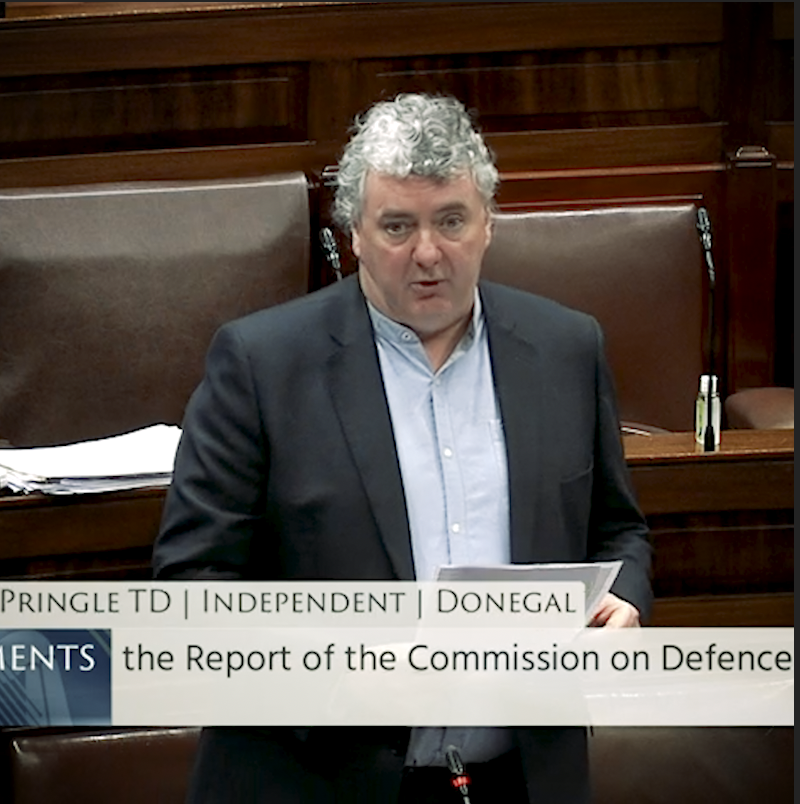- Pringle: We need a policy that recognises the importance of inshore fishing
- Pringle: Disabled people and carers face crisis of State neglect
- Pringle: Failed FF/FG housing policies forcing people to put their lives on hold
- Pringle welcomes Donegal council motion on Occupied Territories Bill: ‘We cannot stand by in the face of genocide’
Pringle says Irish neutrality must be at the heart of Defence Forces planning
- Updated: 17th February 2022

Independent TD for Donegal, Thomas Pringle, said protecting Irish neutrality should be at the heart of planning for the Defence Forces.
Addressing the Dáil on Wednesday during statements on the report of the Commission on Defence Forces, Deputy Pringle said: “I agree that overall we must continue to resource our Defence Forces to ensure that they are properly equipped and trained for the roles that we require them to undertake. But I think that what should ultimately be at the heart of this report is ensuring that we protect our neutrality.”
The deputy said: “The final recommendations of the report calls on the Government and Oireachtas to ‘urgently address the need to define a clear level of ambition for the major roles of the Defence Forces’.
“This includes ‘defence of the State, its people and its resources and overseas missions’. We must be very careful when we are considering this. I would be very concerned about a concerted move away from neutrality, which I believe is the aim for some in government and we must ensure that this is discouraged by all means necessary.
“I would be particularly concerned about the ongoing militarisation of the EU. We need to ensure that in the resourcing of our Defence Forces, the aim is not to create or participate in any sort of European army, but to ensure that our neutrality is at the core of everything we do,” he said.
Deputy Pringle said he supported the cultural change processes outlined in the report, particularly in regard to female participation and diversity.
The deputy said: “The development of expanded recruitment channels for the recruitment and participation of under‐represented groups is welcomed, and I agree that we should enable easier access to Irish citizenship for those who serve in the Defence Forces. We need to recognise barriers that those under-represented groups face when joining the Defence Forces, such as family-friendly hours, and I’m glad to see that the report recommends the extension and enhancement of family-friendly policies.”
He also welcomed the area of “green defence”, saying, “We should ensure that our military sets ambitious environmental targets and that analysis of green defence solutions and horizon scanning to identify emerging technologies, is embedded in the capability development planning process.”
Deputy Pringle credited the armed forces’ great tradition of engaging in peacekeeping activities internationally, especially in UN and UN-supported peacekeeping missions. As of August 2021, there are more than 550 Irish personnel deployed to civilian and military international crisis management and peace support operations, he said.
Deputy Pringle said many of those personnel “trained near me in Ballyshannon, where centenary commemorations of the handover of Finner Camp from British to Irish military forces will take place tomorrow (Thursday).
“Our international peacekeeping endeavours should be commended, and I would like to see a continuation of this country’s focus on peacekeeping when we are setting a clear level of ambition for the major roles of the Defence Forces,” he said.



